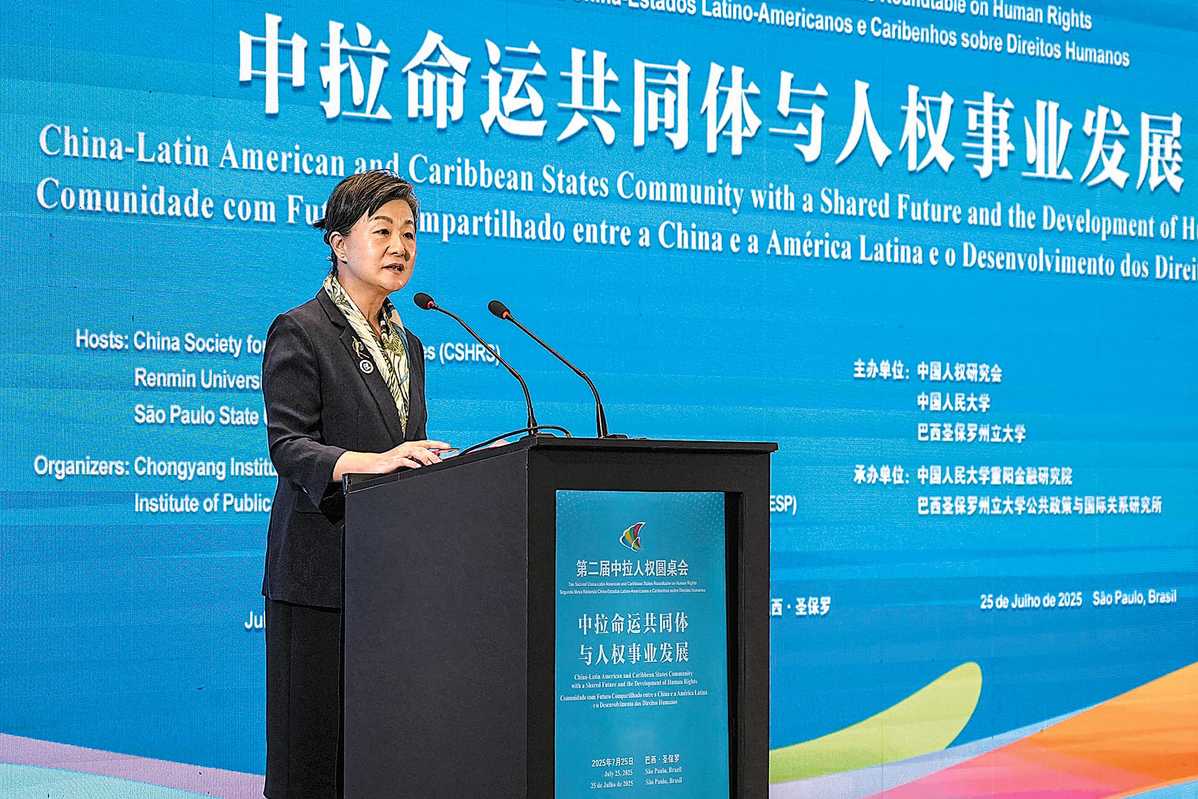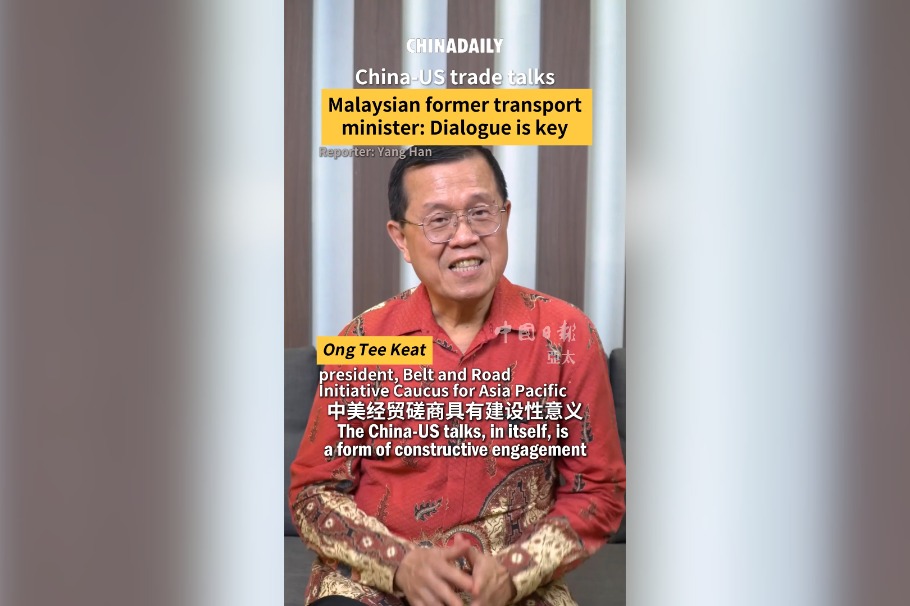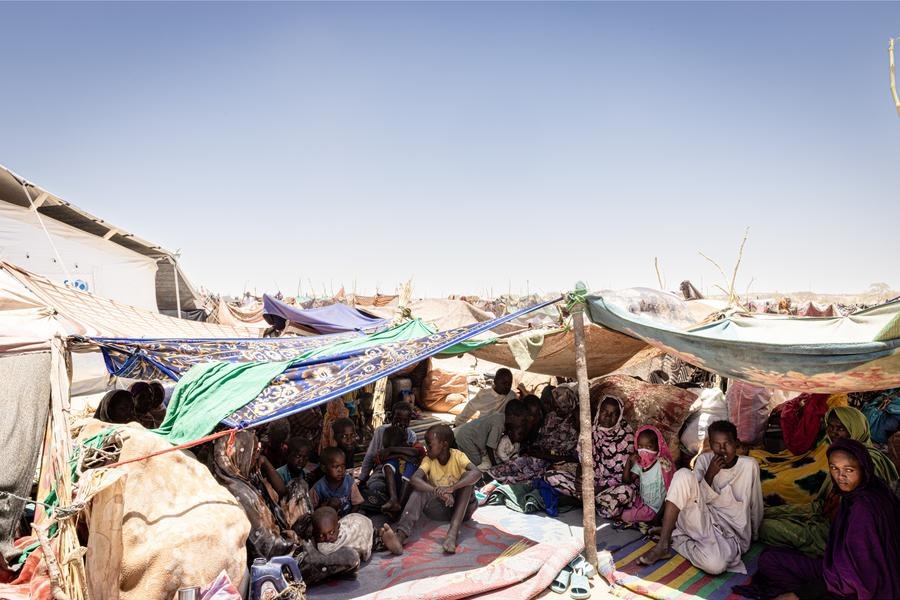China, LAC countries promote human rights
Dialogue calls for reform of politicized frameworks, highlights shared values


As China and Latin American and Caribbean countries deepen cooperation based on mutual respect and sovereign equality, their expanding dialogue on human rights marks a shift toward more inclusive, development-oriented approaches that reflect the priorities of the Global South, experts said on Friday at a forum in Sao Paulo, Brazil.
At the Second China-Latin American and Caribbean States Roundtable on Human Rights, officials, scholars and media representatives from 20 countries discussed key issues including artificial intelligence and human rights, environmental justice, and how China-LAC collaboration can contribute to global human rights governance.
Yu Peng, China's consul general in Sao Paulo, said China prioritizes common security to foster a more stable international environment conducive to realizing human rights.
China promotes a development-first strategy and mutual learning among civilizations, while opposing interference in other countries under the pretext of human rights, he said.
Wang Yanwen, deputy secretary-general of the China Society for Human Rights Studies, highlighted China's efforts to pursue high-quality development while advancing human rights protections.
"China is striving to build a strong nation and realize national rejuvenation through Chinese modernization, guided by a people-centered approach to human rights," she said.
Participants noted that, despite differing backgrounds, both China and LAC countries have accumulated valuable experience in promoting ethnic equality, safeguarding development rights and preserving cultural diversity. These efforts, they said, offer a good example for strengthening South-South cooperation to drive reform in global human rights mechanisms.
Zhang Qingren, deputy director of the Department of Ethnology at Minzu University of China in Beijing, said that in an era marked by both multicultural convergence and tension, China and LAC countries face common challenges in ethnic governance while advancing tailored solutions.
"China promotes unity in diversity and shared prosperity by fostering ethnic solidarity alongside cultural preservation, while Latin American nations have built inclusive plurinational societies through constitutional reforms and indigenous rights protections," Zhang said.
The experiences of China and LAC countries show that promoting ethnic equality and the right to development must go hand in hand, with socioeconomic development serving as the foundation for resolving ethnic issues, he said.
Dai Ruijun, a researcher at the Institute of International Law, Chinese Academy of Social Sciences, said human rights must be addressed with universality, objectivity, and non-selectivity, thereby avoiding double standards and politicization.
"Global human rights governance should respect each country's right to choose its development path based on national conditions."
However, human rights have been used by some Western countries as a geopolitical tool to exert influence over the Global South, said Victoria Donda, a member of the Mercosur Parliament and chair of the Human Rights Commission of Argentina.
"In the name of protecting human rights, those countries have intervened in domestic affairs, imposed sanctions and even waged wars in regions such as Latin America and the Middle East," she said.
"The Global South has the right to participate in defining and safeguarding human rights. Those who once pursued colonial policies and supported dictatorships should no longer have the power to dictate what human rights are, how they should be protected, or who is violating them."
Javier Alberto Vadell, a professor at the Pontifical Catholic University of Minas Gerais in Brazil, said multilateral mechanisms such as the Belt and Road Initiative are crucial for Latin American countries to achieve inclusive development.
He praised the BRI's key role in helping Latin American countries address long-standing infrastructure deficits. Projects in transport, energy and digital connectivity have not only created jobs and boosted trade but also supported the transition toward greener, more sustainable energy systems.
"It encourages collaboration on common priorities such as public health ... while enhancing the region's voice in international governance," he said.
Mo Jihong, director of the Institute of Law at the Chinese Academy of Social Sciences, emphasized the importance of China-Latin America collaboration in improving the global human rights governance.
"Developing countries emphasize the fundamental rights to survival and development, advocating for a balanced approach that recognizes both the universality and particularity of human rights," he said.
"Therefore, as key members of the developing world, China and Latin American countries share broad common interests and similar positions on human rights."
Zhao Manfeng in Sao Paulo, Brazil, contributed to this story.
liujianqiao@chinadaily.com.cn
































